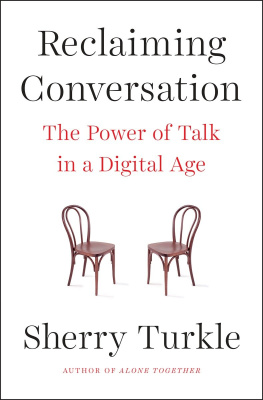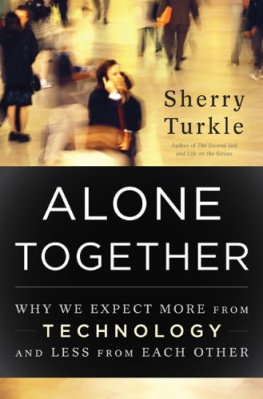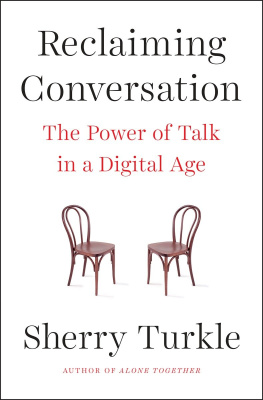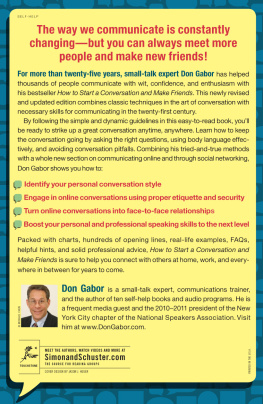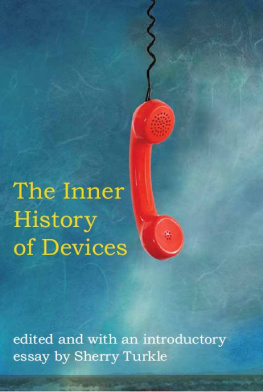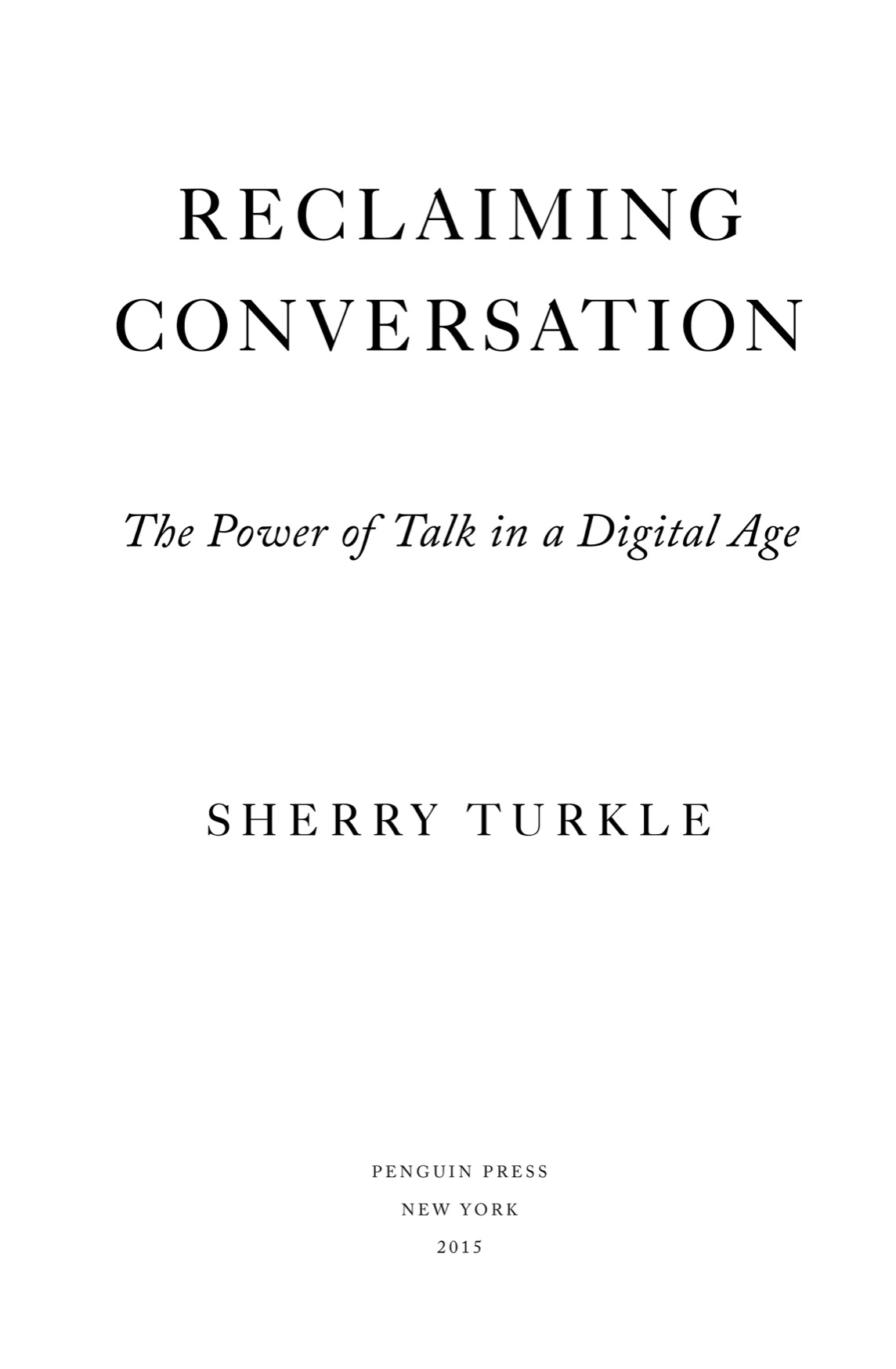Sherry Turkle - Reclaiming Conversation: The Power of Talk in a Digital Age
Here you can read online Sherry Turkle - Reclaiming Conversation: The Power of Talk in a Digital Age full text of the book (entire story) in english for free. Download pdf and epub, get meaning, cover and reviews about this ebook. year: 2015, publisher: Penguin Press, genre: Home and family. Description of the work, (preface) as well as reviews are available. Best literature library LitArk.com created for fans of good reading and offers a wide selection of genres:
Romance novel
Science fiction
Adventure
Detective
Science
History
Home and family
Prose
Art
Politics
Computer
Non-fiction
Religion
Business
Children
Humor
Choose a favorite category and find really read worthwhile books. Enjoy immersion in the world of imagination, feel the emotions of the characters or learn something new for yourself, make an fascinating discovery.
- Book:Reclaiming Conversation: The Power of Talk in a Digital Age
- Author:
- Publisher:Penguin Press
- Genre:
- Year:2015
- Rating:4 / 5
- Favourites:Add to favourites
- Your mark:
Reclaiming Conversation: The Power of Talk in a Digital Age: summary, description and annotation
We offer to read an annotation, description, summary or preface (depends on what the author of the book "Reclaiming Conversation: The Power of Talk in a Digital Age" wrote himself). If you haven't found the necessary information about the book — write in the comments, we will try to find it.
Renowned media scholar Sherry Turkle investigates how a flight from conversation undermines our relationships, creativity, and productivityand why reclaiming face-to-face conversation can help us regain lost ground.
We live in a technological universe in which we are always communicating. And yet we have sacrificed conversation for mere connection.
Preeminent author and researcher Sherry Turkle has been studying digital culture for over thirty years. Long an enthusiast for its possibilities, here she investigates a troubling consequence: at work, at home, in politics, and in love, we find ways around conversation, tempted by the possibilities of a text or an email in which we dont have to look, listen, or reveal ourselves.
We develop a taste for what mere connection offers. The dinner table falls silent as children compete with phones for their parents attention. Friends learn strategies to keep conversations going when only a few people are looking up from their phones. At work, we retreat to our screens although it is conversation at the water cooler that increases not only productivity but commitment to work. Online, we only want to share opinions that our followers will agree with a politics that shies away from the real conflicts and solutions of the public square.
The case for conversation begins with the necessary conversations of solitude and self-reflection. They are endangered: these days, always connected, we see loneliness as a problem that technology should solve. Afraid of being alone, we rely on other people to give us a sense of ourselves, and our capacity for empathy and relationship suffers. We see the costs of the flight from conversation everywhere: conversation is the cornerstone for democracy and in business it is good for the bottom line. In the private sphere, it builds empathy, friendship, love, learning, and productivity.
But there is good news: we are resilient. Conversation cures.
Based on five years of research and interviews in homes, schools, and the workplace, Turkle argues that we have come to a better understanding of where our technology can and cannot take us and that the time is right to reclaim conversation. The most humanand humanizingthing that we do.
The virtues of person-to-person conversation are timeless, and our most basic technology, talk, responds to our modern challenges. We have everything we need to start, we have each other.
Sherry Turkle: author's other books
Who wrote Reclaiming Conversation: The Power of Talk in a Digital Age? Find out the surname, the name of the author of the book and a list of all author's works by series.

